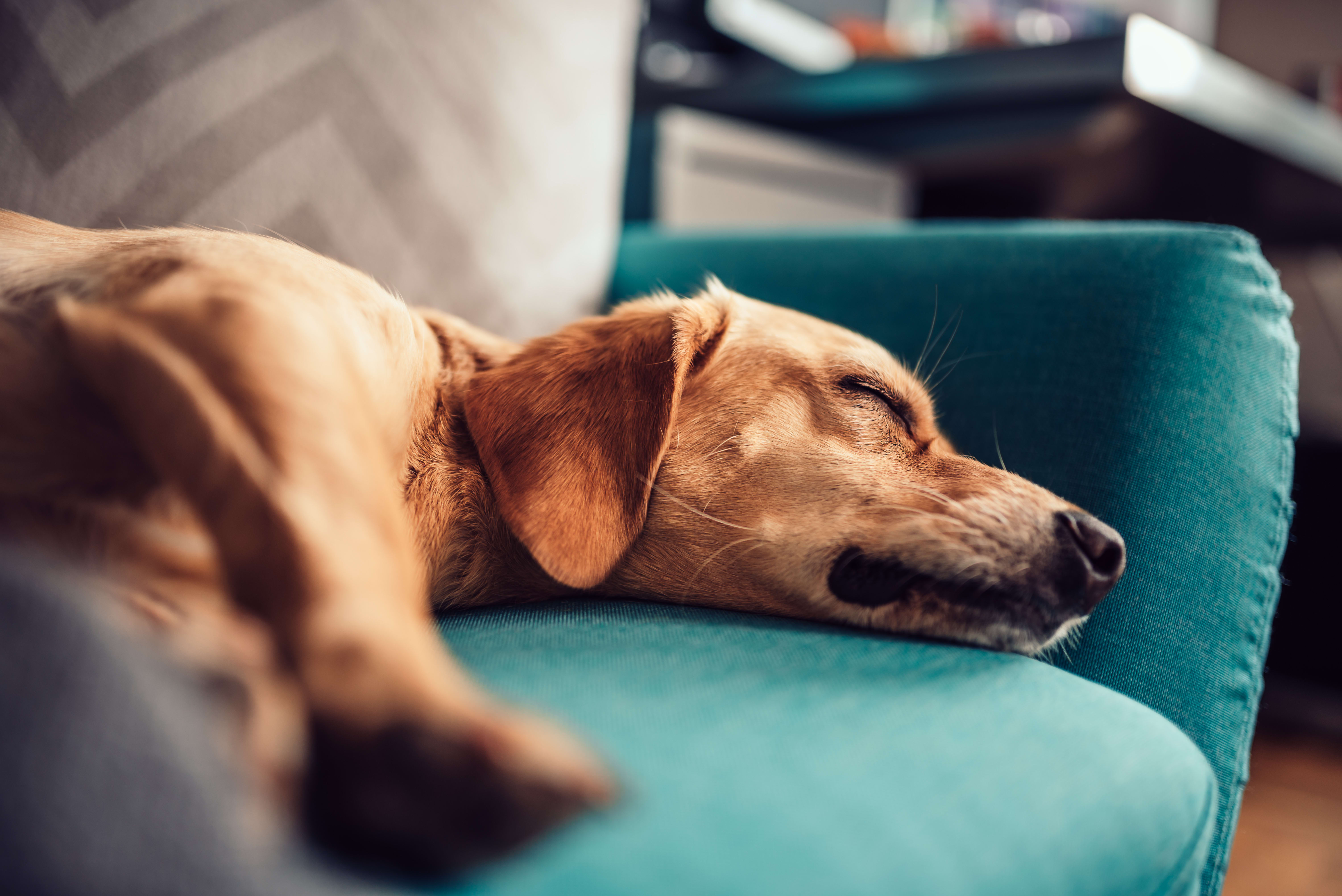Depression & Anxiety in Dogs
Do your dog's nerves seem to be on edge, or is your pooch behaving in a way that leads you to believe they may be anxious or depressed?
Check out the list of symptoms below. If your dog is exhibiting three or more of the following signs of depression or anxiety, a trip to your vet can help to pinpoint whether your pup's symptoms are caused by depression, anxiety, or something else:
Signs of Dog Depression
- Won't play with people or toys
- "Sad" expression
- Lack of energy
- Avoiding you or hiding
- Growling, howling or aggression
- Sleeping too much
- Decreased appetite
- Not sleeping
Signs of Dog Anxiety
- Destructive chewing or destroying furniture
- Obsessive paw licking
- Spontaneous bowel movement or urination
- Panting for no reason
- Pacing aimlessly
- Whimpering, trembling, or whining
Causes of Depression & Anxiety in Dogs
Dogs feel most contented when their day-to-day activities stick to a regular routine. This means that any major life changes or distressing events can have a huge impact on their emotional state.
While obviously emotional events such as their owner’s death or prolonged absence can bring on symptoms of anxiety or depression in dogs, other less extreme events such as a move to a new home, injury or illness, change in routine, or even a new pet or person in the home could be the cause of your pup's case of the blues.
Simple Ways to Help Your Pup to Feel Better
Dogs that are anxious or depressed benefit from predictable routines and environments, closely monitored social interactions, and lots of physical activity. Below are a few more tips on how to help reduce your dog's depression:
See Your Vet
Some symptoms linked to depression and anxiety can actually have physical causes that need urgent veterinary attention. The first thing you should do if your dog doesn't seem happy is to schedule a visit with your vet.
Although dogs will often recover from depression with just a little extra love and attention from their pet parent, your veterinarian can provide medications such as antidepressants or anti-anxiety aids to help calm their nerves if things don’t show signs of improvement.
Keep Your Dog Busy
Bored pets often get into mischief, and become anxious or depressed. Make sure your pooch gets plenty of exercise before you leave the house for the day, and supply your pup with enough toys to keep them busy and help curb dog anxiety. Look for toys that are interactive or can be stuffed with treats to keep your dog's body and mind active while you're out of the house.
Social Time With People & Animals
It's important for pet parents to remember that dogs are social creatures that love to be around people and other animals. If your pup seems lonely and sad try taking your pooch to the dog park, group classes or doggie daycare for additional social interaction. You may even want to consider getting a companion animal for your dog.
Plenty of Love & Patience
Dogs need lots of love and patience to feel safe and contented - even more so if they are feeling depressed or anxious. By giving your pup a little extra time and attention you may be able to alleviate these issues.
Note: The advice provided in this post is intended for informational purposes and does not constitute medical advice regarding pets. For an accurate diagnosis of your pet's condition, please make an appointment with your vet.
Do you think that your dog is depressed or anxious? Our Huntersville Mecklenburg County vets can help. Contact us today to book an appointment for your canine companion.
Looking for a vet in Huntersville and Mecklenburg County?
We're always accepting new patients, so contact our veterinary hospital today to book your pet's first appointment.
Related Articles View All
Puppy’s First Vet Visit: Checklist & What to Expect
Set your new puppy on the path to good health by getting the most out of each vet visit. Here is what you can expect from your puppy's first vet visit, along with a checklist of things to take and questions to ask your vet.
Kitten's First Vet Visit: What to Expect
So you have just brought home a little bundle of joy. Congratulations! But make sure you're scheduling your first veterinary appointment, as well as routine exams going forward. To help you prepare, our Huntersville vets discuss what to expect at your kitten's first appointment.
How often should I take my dog to the vet?
Regular veterinary care including checkups, parasite prevention, and vaccinations are the key to keeping your dog healthy throughout their lifetime. But, how often should you take your dog to the vet, and how can you save money? Read on to find out.
Bladder Stones in Dogs
Broken jaws are an alarmingly common, and painful, injury in our canine companions. In today's post, you will learn some of the causes of a broken jaw in dogs, how they can be repaired, and a few tips on caring for your dog as their jaw heals.

